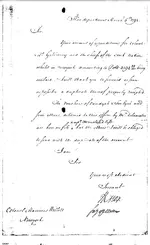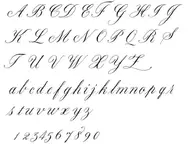Re: 1791 Treaty--New York Cased silver watch. Need information.Humbert & Mairet.
I found this while researching something else. It's a history of Alabama and surrounding areas. It was written in 1851.
http://homepages.rootsweb.ancestry.com/~cmamcrk4/pkt25.html#anchor773372
1790: Thus did Alexander McGillivray at last surrender the Oconee lands, about which so much blood had been shed, and so much negotiation wasted. And for what? For fifteen hundred dollars, to be paid annually to the Creek nation, with also some goods, to be distributed among the Indians, which were then in the warehouses of Augusta. The Federal Government also guaranteed to them their territory free from future encroachments. *
* American State Papers Indian Affairs, vol. 1 pp. 81-82.
Did the proud, the powerful, the shrewd Alexander McGillivray surrender these valuable lands for the pitiful amount already mentioned? Ah!--but the reader must not be too fast. There was a secret treaty between him and Washington, which now for the first time, comes to light in history. It provided that, after two years from date, the commerce of the Creek nation should be carried on through the ports of the United States, and, in the meantime, through the present channels; that the Chiefs of the Ocfuskees, Tookabatchas Tallases, Cowetas, Cussetas, and the Seminole nation, should be paid annually, by the United States, one hundred dollars each, and be furnished with handsome medals; that Alexander McGillivray should be constituted agent of the United States, with the rank of Brigadier General, and the pay of twelve hundred dollars per annum; that the United States should feed, clothe and educate Creek youth at the North, not exceeding four at one time.
Thus Colonel McGillivray secured to himself new honors, and a good salary, by a secret treaty, which left him in a position to return home and intrigue with Spain. Even in the presence of Washington, and his able cabinet, the Chieftain pushed hard for favorable terms, and received them.*
* I am indebted to Colonel John A. Campbell, an eminent lawyer of Mobile, and to Mr. Alfred Hennen, a distinguished member of the New Orleans bar, for placing in my hands papers filed in the District Court of Louisiana containing the letters of Alex. McGillivray to Panton, dated at Little Tallase, September 20, 1788, and August 10, 1789, which have been copied in this History, at length. I also found among this file the "secret treaty," written upon sheep-skin, and signed by Washington, Knox, McGillivray and the Chiefs. A celebrated law-suit brought in this court by Johnson and other claimants, under the heirs of McGillivray vs. the heirs of Panton, was the means of the preservation of these important historical papers.
Aug. 18: Receiving half of his salary in advance, McGillivray left New York, with the Chiefs, for the bright waters of the Alabama. A veil of silence covers the acts of the august Chieftain for several months, and we hear nothing more of him, until he was visited, in the nation, by Lieutenant Heth, who bore with him two thousand nine hundred dollars in gold, the balance due to the Chiefs, agreeably to the treaty. He brought this money, on pack-horses, from New York around by Virginia and East Tennessee. Heth was instructed to remain with McGillivray a long time, and endeavor to get him to carry out the provisions of the treaty, in regard to the restoration of prisoners and negroes, and the running of the line between the Creeks and Georgians.
--------------------------------------------------------------------------------








 Yard sale/flea market/auction?
Yard sale/flea market/auction?






